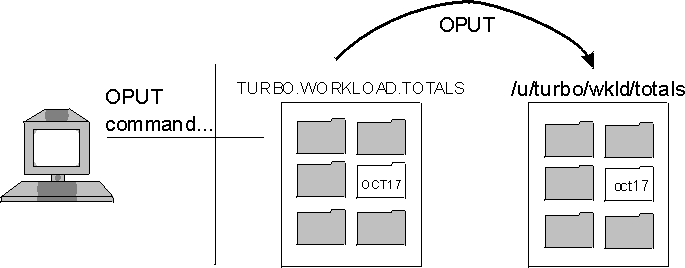 z/OS UNIX System Services User's Guide
z/OS UNIX System Services User's Guide
 z/OS UNIX System Services User's Guide
z/OS UNIX System Services User's Guide
|
Previous topic |
Next topic |
Contents |
Contact z/OS |
Library |
PDF
Example: Using OPUT with a PDSE member z/OS UNIX System Services User's Guide SA23-2279-00 |
|
 If the user ID TURBO wants to copy a member of a PDSE into a file,
TURBO enters the following TSO/E OPUT command:
The directories specified in the path name must already exist. This command creates a new file, but it does not create a new directory. 


|
 Copyright IBM Corporation 1990, 2014 Copyright IBM Corporation 1990, 2014 |